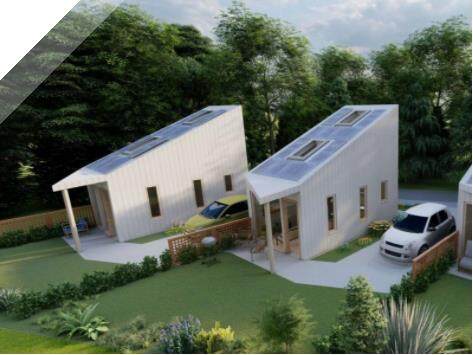Students from RGU’s Scott Sutherland School of Architecture and Built Environment have designed a series of small, affordable houses as part of a project with Grampian Housing Association.


The students were tasked with creating three types of accommodation to cater for a single person, a couple and a small family, with sustainability and the most efficient use of energy at the core of the design.
Among the key features of the ‘Tiny Houses’, was the ability for self-assembly, to help reduce construction costs, and clever storage, to maximise space in the accommodation.
The designs will now form part of a competition, where the public can vote for their favourite projects, with the winners being decided by members of Grampian Housing Association and the academic team at Scott Sutherland School.
Dr Amar Bennadji, lecture in Architecture at RGU, commented: “A tiny house movement is spreading worldwide to achieve a decent living space without the financial burden, and we felt this was an ideal opportunity for our students to work on a live project which could have positive implications for the local community.
“It has been great to work alongside Grampian housing Association on the project. This experience of designing an affordable dwelling could be a long-time solution to provide shelter and preserve people’s dignity by offering them just what they need.”
Neil Clapperton, chief executive of Grampian Housing Association said: “The project is completely aligned to our objectives of providing affordable sustainable homes to meet people’s housing needs.
“It is an enlightening experience being involved in the project and the high quality of work of the students is to be commended.”
Board Chairman of Grampian Housing Association and RGU lecturer, Abhishek Agarwal, added: “Through this project we are hoping that we are able to support our communities by driving the agenda for affordable, innovative and sustainable homes, but at the same time offering support for skills development in the built environment.”
You can view and vote for each of the student designs by visiting the site. All of the projects will be exhibited in a virtual exhibition later in the year.


































